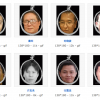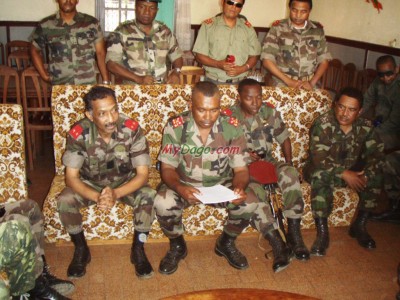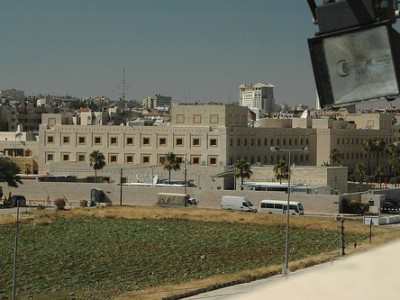Stories from November, 2010
Russia: Competing Models of Internet Politics
RuNet becomes an arena of the competition of at least two concepts of the usage of the cyberspace: "United Russia"'s formula "Internet instead of democracy" and independent, grass-roots formula "Internet as a free environment for civil society initiatives." Alexey Sidorenko analyzed the recent trends of the role of the Internet in contemporary Russian politics.
China: “Hang the Slaves of the West”
A new website that vilifies Chinese political liberals, including 2010 Nobel Prize winner Liu Xiaobo, has caught the attention of the Chinese internet for its extreme views. Why has it not been removed by censors?
Additional Context on the Recent Political Arrests in Madagascar
Blogger Alain Rajaonarivony writes at length about the implications of the recent series of political arrests in Madagascar (fr). A close relative to Raymond Ranjeva and his daughter describes the circumstances of their arrest. Here is a petition to denounce the arbitrary arrests (fr).
China: Censorship instruction November 22-28
China Digital Times has collected and translated a number of censorship instructions issued by the Propaganda department to media outlets from November 22-28 2010.
Brand China
Imagethief blogs the discussion on “brand China” at the Capital-M Trialogue. The discussion panel addressed issues related to the ability of the Chinese companies to establish their brands internationally, and Chinese soft power and international perceptions of China as a whole.
Fiji Water closes the tap and leaves Fiji
After squabbling with Fiji's government, the US-based premium water company Fiji Water closed its bottling plant and canceled its contracts. While the company's leaders hope to strike a deal with Fiji's military government, an estimated 4,000 people are affected by the closure. Fiji's bloggers and commenters provide their take on the matter.
Guatemala: Film Festival Under the Moonlight
From November 30 to December 4, Guatemalan movies and documentaries will be shown for free at the “IV Festival de Cine Bajo la Luna” [IV Film Festival Under the Moonlight]. The blog Ati provides a schedule [es] and additional information [es].
Central & Eastern Europe: Initial Reactions to WikiLeaks’ Cablegate
While other regions feature a lot more prominently in the collection of U.S. embassy cables published by WikiLeaks thus far, a few countries of the CEE region do appear in the kickoff edition of Cablegate. Below is a small selection of initial reactions from the region's bloggers.
Philippines: #dearlottowinner hashtag
Twitter users in the Philippines are using the hashtag #dearlottowinner to greet and send suggestions to the lone grand lotto winner who stands to receive $US15 million, the biggest jackpot prize in Philippine gaming history.
Australia Waking to Cancún
In the lead up to Cancún (the COP16 meeting of Parties to the United Nations Framework Convention on Climate Change and the Kyoto Protocol) online discussion in Australia has finally spiked. Here are sample blog reactions
Cambodia: Lessons from the Water Festival stampede
Cambodians are still mourning the death of 347 people in the stampede tragedy which happened last week at Koh Pich Bridge in Phnom Penh. Cambodian netizens share their reactions and recommendations on how to improve disaster management in the country
Uruguay: Video Podcast About E-Government in Uruguay
Uruguay: click para actualizar [click to refresh] interviewed [es] José Clastornik, Executive Director of AGESIC [es] (E-Government, Information Society and Knowledge Agency), about the “Electronic Government” in Uruguay.
Latin America: Summary of Several Leaked Documents on the Region
Erwin from The Latin Americanist summarizes some findings about U.S relations with Honduras, Venezuela, Argentina, Colombia, and Panama from the diplomatic documents recently released by Wikileaks.
El Salvador: New Law Targets Violence Against Women
“On Thursday, November 25, El Salvador's National Assembly unanimously passed the Law for A Life Free From Violence for Women. For the first time, the law creates a separate crime of femicide for the murder of a woman on account of her gender. The law also imposes stiffer penalties on...
Bolivia: Similarities Between El Alto and Rio de Janeiro
Carlos Gustavo Machicado [es] writes about the recent wave of violence in Rio de Janeiro, Brazil, noting the similarities between Rio de Janeiro and El Alto in La Paz, Bolivia. He concludes that the best way to prevent violence in Bolivia is by fighting poverty.
Madagascar: Wave of Arrests in the Aftermath of the Failed Coup
In the aftermath of the referendum and simultaneous failed putsch , a veritable waltzes of arrestations and investigations are shedding a sad shadow on the island of Madagascar. Malagasy citizens react to the series of concerning events that have left many of them either incredulous, cynical or just plain blasé.
Philippines: Student unrest over education budget cuts
Students from various public universities in the Philippines held massive protest actions against the budget cuts imposed by the government. Students documented the 'campus strikes' by using the internet.
South Asia: The Morality Of Exposing Others’ Secrets
WikiLeaks, an international non-profit media organization has created waves around the world by publishing 251,287 confidential documents, which detail correspondence between the U.S. State Department and U.S. embassies around the world. Some South Asian bloggers were quick to publish their opinions on this issue.
Jordan: Wikileaks’ “Cablegate” Raises Questions
The recent Wikileaks release, known as "Cablegate," featured several quotations from Jordanian officials, as well as large numbers of cables from the U.S. Embassy in Amman. Jordanian tweeters had varied initial reactions to the latest leak from the whistle-blower site.
Middle East: The Not-So-Secret US Embassy Secret Cables
While mainstream media across the Arab world gave the secret US Embassy cables released yesterday the cold shoulder, bloggers and Twitter users from the Middle East found much needed material to chew on.
Morocco: Danish journalist deported for Western Sahara fishing story
A Danish journalist who did a radio story on the European Union paying Morocco for fish from Western Sahara was deported from Morocco two days after arriving. His computer hard drive and SIM card were confiscated.









